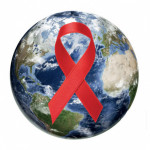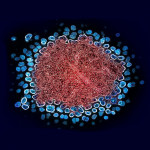Regimens containing a protease inhibitor (PI) might be less prone to drug resistance upon treatment failure than regimens containing a non-nucleoside reverse transcriptase inhibitor (NNRTI) in people with poorer adherence, according to a study published online December 16 in AIDS.
Though antiretroviral (ARV) treatments have become more potent, tolerable and easy to take in recent years, people must still take their pills as prescribed every day to avoid developing drug resistant virus. To that end, researchers and providers have long argued about which type of treatments might be more forgiving if a person fails to maintain very good adherence.
To determine whether one type of drug is more forgiving than another, Edward Garner, MD, from Denver Public Health, and his colleagues analyzed adherence data and virologic failure data from the Community Programs for Clinical Research on AIDS (CPCRA) Flexible Initial Retrovirus Suppressive Therapies (FIRST) Study. The researchers compared three types of ARV regimens. All included two nucleoside reverse transcriptase inhibitors (NRTIs) plus either a PI, an NNRTI or both. The specific drugs used were those most popular between 1998 and 2002.
Gardner and his colleagues chose to include data only on those receiving either a PI or an NNRTI, and not those who received both, as the combination of PIs and NNRTIs is not recommended. The analysis included 457 people who took a PI-based regimen, and 446 who received an NNRTI-based regimen. Adherence was assessed regularly by having the participants state whether they had missed doses in the previous seven days.
Through the course of the study, 71 percent of those on a PI-based regimen either failed to control their HIV or had a return of virus (virological failure), while 59 percent on an NNRTI regimen had virological failure.
In general, adherence was high in both groups, approaching 90 percent of doses taken correctly. Gardner’s team found, however, that people on a PI were significantly less likely to develop resistance if they had poorer adherence than people with poorer adherence on an NNRTI, though people on an NNRTI with better adherence were less likely to have virological failure. People taking a protease inhibitor without low-dose Norvir (ritonavir) were also more likely to develop drug resistance with poorer adherence than those who took a Norvir-boosted PI.
One study limitation, acknowledged by the authors, is that they did not test for previously existing drug resistance before people initiated treatment in the study. This could have affected the results. They also acknowledge that many of the treatments included in the study are no longer in common use. The researchers conclude, “These analyses…demonstrate why boosted protease inhibitor–based and NNRTI-based antiretroviral therapies are preferred over nonboosted protease inhibitor–based options.”
Advertisement
Advertisement
Advertisement






Comments
Comments